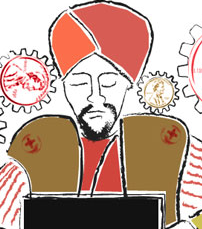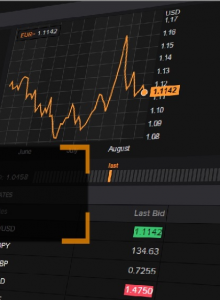Enseignement ouvert aux auditeurs libres. Pour s’inscrire, merci de renseigner le formulaire.
Une séance spéciale, folks ! Dans le cadre de notre séminaire EHESS Etudier les cultures du numérique, nous allons accueillir Karen Gregory (maître de conférences en digital sociology à l’Université d’Édimbourg) et Mark Graham (professeur d’internet geography à l’Université d’Oxford), deux des plus importants jeunes chercheurs européens sur le digital labor, pour une conférence à deux voix.
De manière exceptionnelle, cette séance du séminaire se déroulera en anglais, le lundi 20 février 2017, de 17h à 20h, salle Lombard, EHESS, 96 bd. Raspail, Paris 6e arr.
Pour suivre le séminaire sur Twitter : hashtag #ecnEHESS.
 Title: Three Phases of Digital Labor: Locating Exploitation in the Digital Economy
Title: Three Phases of Digital Labor: Locating Exploitation in the Digital Economy
Speaker: Karen Gregory (University of Edinburgh)
Abstract: This lecture functions not only as introduction to the topic of digital labor, but asks to consider the deeply political implications of the digital economy, particularly as it relates to social, civil, and racial justice. The rise of information and communication technologies has both drawn global economies together, as well as given rise to stark inequalities. We can see three distinct “phases” of digital labor, with each phase speaking to new understandings of exploitation, as well as new arrangements of data collection, surveillance, and control.
 Title: The Global Gig Economy and Its Implications for Digital Workers
Title: The Global Gig Economy and Its Implications for Digital Workers
Speaker: Mark Graham (University of Oxford)
Abstract: A global market for digitally-outsourced work now exists. It offers significant benefits and opportunities but also poses significant risks and costs for digital workers around the world. Some of these risks emerge when work is seen as a commodity to be bought and sold, and workers see themselves as individual entrepreneurs. When that is the case, it is rational to exploit co-workers; and many have internalized these visions of individuality, competition and predatory behavior. Instead of seeing digital work as operating in a global, ephemeral, virtual dimension beyond the realm of regulation or worker organization, we can reflect on its real geographies and reveal sites of strength and solidarity for workers.
Prochaines séances
 |
20 mars 2017 Nikos Smyrnaios (Université Toulouse 3) Stratégies et logique des GAFAM |
 |
10 avril 2017 Mary Gray (Microsoft Research) Behind the API: Work in On-Demand Digital Labor Markets |
 |
15 mai 2017 Louis-David Benyayer (Without Model) et Simon Chignard (Etalab) Les nouveaux business models des données |
 |
19 juin 2017 Juan Carlos De Martin (NEXA Center for Internet & Society) Looking back at the 2015 ‘Declaration of Internet Rights’ |
![[Séminaire #ecnEHESS] Mark Graham & Karen Gregory “Digital Labor and Global Exploitation” (20 févr. 2017, 17h)](https://www.casilli.fr/wp-content/uploads/2017/02/sweatshop2.jpg)